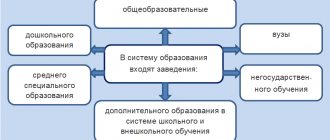More recently, on 01/01/18, the so-called tax amnesty for individuals. Its essence was to write off debt on land, property and transport taxes, as well as penalties and fines accrued for arrears. The changes made to the Tax Code also affected other areas. So, now pensioners are included in the category of beneficiaries.
Additionally, a new type of deduction for land tax was provided. Six acres of land are now tax-free. Only categories of citizens entitled to the corresponding benefit can count on receiving privileges. All individuals can take part in the procedure. In this case, the reason for the debt and the financial situation of the citizen will not be taken into account. But not all taxes will be written off. We will talk further about who can count on participating in the amnesty, what debts for which payments will be cancelled, as well as other features of the procedure that are relevant for 2021.
The Tax Amnesty Law forgives debts of Russians
December 28, 2021 President of the Russian Federation V.V. Putin made a number of proposals aimed at improving the lives of citizens. In addition to social projects, the head of state recommended that the Government develop a bill to amnesty the tax debts of individuals and individual entrepreneurs.
It is worth noting that according to statistical data from the tax authorities, as of January 1, 2015, the population had debts and penalties, which in total amounted to quite large amounts. Gradually, by the end of 2021, it decreased by about half, but there are debts that ultimately will not be included in the budget. At the beginning of 2021, their amount amounted to more than 40 billion rubles.
Since the statute of limitations for such debt is expiring, it was decided to write it off by law without unnecessary bureaucratic delays. Amendments to the Tax Code of the Russian Federation were introduced by the Law of December 28, 2017. No. 436-FZ. According to the text of the document, debts in several categories of taxes, as well as penalties and fines for non-payment, will be considered uncollectible and written off.
The first stage of debt write-off under the tax amnesty was completed on February 28, 2021. Property taxes were written off in full:
- transport tax;
- property tax for individuals;
- land tax .
From March 1, 2021 to February 20, 2021, the second stage of the tax amnesty for entrepreneurs ended.
The third began on June 1, 2021 and ended on February 29, 2020 . It applies to writing off arrears of taxes and insurance contributions (8 minimum wages) for individual entrepreneurs - more details can be found here.
What is needed to write off taxes when declared bankrupt?
Writing off debts (and not only to the tax authorities) through bankruptcy proceedings can be a solution if the debtor is unable to fulfill his financial obligations to creditors. Moreover, if previously only legal entities could be declared bankrupt, now this opportunity has become available to ordinary citizens.
So, obtaining bankruptcy status allows you to write off taxes, but this can only be done on the condition that the proceeds from the sale of property will not be enough to pay the debt.
To write off tax debt after receiving a court decision declaring bankruptcy, the taxpayer will need to submit an application to the tax office and attach documents confirming the bankruptcy status and the existence of debt. In case of bankruptcy, the debt is also recognized as uncollectible, but on the basis that the citizen is financially insolvent.
Important! Judicial practice suggests that sometimes during bankruptcy proceedings it is concluded that the debtor deliberately evaded paying taxes. In this case, tax debts cannot be written off.
It should be borne in mind that bankruptcy entails a number of unfavorable consequences for a citizen. So, for example, when applying for a loan within 5 years after receiving bankruptcy status, a citizen will be required to report this fact to the bank. It is also prohibited to hold positions in the management bodies of a legal entity for 3 years. Therefore, when deciding to write off debts through bankruptcy, you should consider all the pros and cons of this option.
Thus, the law today provides citizens with the opportunity to get rid of tax debt, but it is possible to exercise this right only in the presence of appropriate circumstances (overdue debt, grounds for declaring bankruptcy).
If you are planning to write off taxes, we recommend that you contact a lawyer: a specialist will analyze the possibility of writing off in one way or another and provide professional legal assistance at all stages of the procedure.
Sources:
Tax Code of the Russian Federation. Article 59. Recognition of arrears and debts on penalties and fines as hopeless for collection and their write-off
Federal Law “On Insolvency (Bankruptcy)” dated October 26, 2002 No. 127-FZ. Chapter X. Bankruptcy of a citizen
What tax debts will be written off for individuals in 2021?
According to Art. 12 of Law No. 436-FZ, property tax debts were subject to write-off, these include:
- ownership of a plot of land (land tax);
- real estate tax;
- transport tax.
For what years? Debts that were incurred before January 1, 2015 were written off, after which only fines and penalties that arose due to their failure to pay before January 1, 2021 were written off.
From the official source nalog.ru, the period for writing off property tax debt for individuals ended on March 1, 2021.
In 2021, debts incurred before January 1, 2015, will continue to be written off for individuals (former individual entrepreneurs, lawyers, notaries, etc.) who were previously engaged in entrepreneurial activities or had private practice.
In 2021, there is a possibility of continuing work under the same amnesty if the Federal Tax Service does not have time to write off debts under Law 436-FZ.
Personal income tax debts
Only citizens who have received income, but contributions have not been paid to the budget, can be exempted from personal income tax debt, subject to the following conditions:
- during the period of receiving income from 01/01/2015 to 01/01/2017;
- the organization submitted information on form 2-NDFL about the citizen’s income to the tax office.
Such a situation may arise in the event of writing off a citizen’s debts to other organizations, for example, telecom operators, utility companies, and others. In fact, the person did not receive income, but Form 2-NDFL was submitted and the tax authorities must calculate the tax.
The exemption will not affect personal income tax on income received:
- as payment for labor, work performed, services rendered, etc.;
- material benefit;
- as prizes, winnings and other similar income from lotteries and competitions;
- interest, dividends on deposits and securities;
- in kind.
Tax benefit for land tax for 600 sq. m. for pensioners
Separately, I would like to note that this regulatory act includes an amendment regarding the taxation of pensioners with land tax. Now you won’t have to pay anything for using a plot within 6 acres. If it is larger, then the benefit is provided as follows: we subtract 6 acres from the total area of the plot and, after multiplying by the cadastral value, we obtain the tax base for calculating the land tax.
Ways to write off tax debt
In what cases, under current legislation, can debtors count on write-off? There are two main ways to free an individual (i.e., an ordinary citizen) from tax debt - declaring the debt bad and bankruptcy.
The first option provides that the tax can be written off subject to the expiration of the statute of limitations or if the tax inspectorate did not issue a demand for payment within the established time frame. Also, such debts are written off on the basis of special laws. The second option is applicable in a situation where a citizen cannot fulfill his financial obligations, as a result of which he is declared bankrupt in the prescribed manner.
When and how will tax debts be written off?
Debt is written off by the tax authorities independently, without the participation of the taxpayer . Additionally, there is no need to contact the tax authorities.
Debt write-off under the “Tax Amnesty” occurs without the participation of the taxpayer. The Federal Tax Service itself will unilaterally write off the debt as a bad debt. At the same time, the competence of the tax authority does not include the obligation to notify citizens about this.
The exact timing of write-off has not been officially established, so the taxpayer must monitor the situation independently.
There are three ways to find out your tax debt:
- When applying in person to the territorial tax office at your place of residence, presenting an identity card;
- On the State Services website;
- On the official website of the Federal Tax Service.
There is a way to speed up the process of writing off debts by writing a corresponding statement:
- Within the framework of the law dated 02.05.2006 No. 59-FZ “On the procedure for considering appeals from citizens of the Russian Federation,” they have the right to make a written request to apply the measures that have entered into force within the framework of 436-FZ and receive a response within 30 days.
- The second opportunity to write an application is determined by Article 21 of the Tax Code of the Russian Federation - this is a request for a reconciliation. After 15 days from the date of receipt of such an application, the Federal Tax Service must make a reconciliation report with the taxpayer, where it will be clear whether he has arrears that fall under the amnesty -.
Attention! Tax debts generated at the beginning of January 2015 and paid (collected) before the effective date of Law No. 436 are not covered by the amnesty.
Cancellation of transport tax 2021 in Russia: pitfalls of amnesty
The amnesty for vehicle payments will not affect all debtors, as it might seem at first glance. Let's figure out why this situation has developed.
In 2021, tax officials may send the payer a notice that may include contributions for 2021, 2021, and 2021. Consequently, it will not be possible to recover amounts not paid before 2021. That is, in this case, the abolition of the transport tax (Putin signed the tax amnesty law) has no practical meaning.
Let's consider another case. The car owner has not paid for his vehicle, and the Federal Tax Service sends a corresponding notification. After this, the unscrupulous car enthusiast still did not repay the debt, and its amount began to exceed 3,000 rubles. In this case, tax authorities have the right to go to court to recover funds within six months. That is, the Federal Tax Service still retained the right to collect large debts. Moreover, the three-year collection period can be extended by court action.
If the debt does not exceed 3,000 rubles, tax authorities can monitor this debt for three years. And when it exceeds the established limit, you can apply for collection within six months.
From this we can conclude that the amnesty will affect those vehicle owners whose debt does not exceed 3,000 rubles.
The concept of statute of limitations in taxation
The tax statute of limitations is enshrined in paragraph 1 of Art.
113 Tax Code of the Russian Federation. This provision states: “A person cannot be held accountable for committing a tax offense if 3 years have elapsed from the day it was committed or from the next day after the end of the tax period during which the offense was committed until the decision to bring it to justice is made.” " As we can see, this provision establishes a limitation period only for liability for an offense, but does not apply to the limitation period for fulfilling the obligation to pay tax. It follows that there is no time frame in the Tax Code of the Russian Federation after which the taxpayer would be relieved of the obligation to pay tax.
But this is in the general case. The Code makes an exception for the statute of limitations for transport tax on individuals.
Reasons and purpose of appointment
Constantly recording “bad” tax debts, which daily accumulate additional penalties and fines, is a useless burden for the tax service. These calculations require additional labor costs, but do not bring income to the country's budget. And in addition, the constantly growing amount of debt becomes unaffordable for the taxpayer and makes it impossible for him to pay the tax.
Therefore, the main goals of the law providing amnesty for a certain part of the population’s debts are as follows :
- facilitate the work of the Federal Tax Service;
- reduce the burden of citizens' debts;
- encourage taxpayers who were previously deterred by large amounts of debt to pay their dues on time.
Putting things in order in the tax collection system and freeing it from ballast in the form of the amount of debts that will no longer be paid will allow us to improve the work of the Federal Tax Service in the future, making it more efficient and clear.








